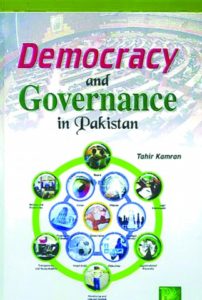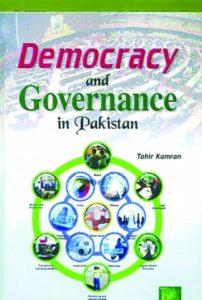Democracy And Governance In Pakistan By Tahir Kamran
- Publisher: POLITICAL SCIENCE
- Availability: In Stock
- SKU: 25773
- Number of Pages: 220
Rs.970.00
Rs.1,295.00
Tags: affordable prices , best books , best books online , Best Price , best prices , Best Selling Books , best shop , Book Shop , Book shopping , bookshop , bookshop Multan , bookshop near me , bookshop online , bookshop online Multan , bookshopPakistan , buy online books , Civic Engagement , Civil-Military Relations , Convenient Shopping , Democracy , Democratic Challenges , digital shopping , Extremism , good books , good books online , good booksonline , Governance , Human Rights , Inclusive Governance , Institutional Reform , Internet Shop , Largest Online Bookstore in Pakistan , Media Influence , Military Interventions , one stop shop , online , Online Book Shop , ONLINE BOOKS , Online Books Shop , online books store , Online Bookshop , Online Bookshop Pakistan , online bookstore , online shop , online shopping , Online Shopping Pakistan , onlinebooks , OnlineShoppingPakistan , Pakistan , Pakistan Bookshop , PakistanBookshop , PakistanOnlineShopping , Political Culture , Political Parties , price cut , price-friendly Comprehensive , ReasonablePrice , reduced price , Rule of Law , secure shopping , Shopping , ShopSmartPakistan , Socio-Economic Factors , Tahir Kamran , Virtual Shop
Tahir Kamran’s analysis of democracy and governance in Pakistan provides a comprehensive examination of the country's political landscape. The study delves into various aspects ranging from historical contexts to contemporary challenges, offering insights into the evolution of democratic institutions and their efficacy in a complex socio-political environment.
Key Points
1. Historical Context: Kamran contextualizes Pakistan's democratic journey within its historical framework, from independence in 1947 to the present day.
2. Evolution of Political Institutions: The evolution of political institutions, such as the parliament, judiciary, and electoral processes, is analyzed in depth.
3. Military Interventions: The impact of military interventions on democratic processes and governance structures is scrutinized.
4. Role of Political Parties: The role of political parties in shaping democratic norms and governance practices is critically examined.
5. Civil-Military Relations: The dynamics of civil-military relations and their influence on democratic stability are explored.
6. Socio-economic Factors: Socio-economic factors affecting democratic governance, including poverty, education, and inequality, are discussed.
7. Media and Public Opinion: The role of media and public opinion in shaping political discourse and democratic outcomes is assessed.
8. Human Rights and Rule of Law: The state of human rights protection and the rule of law in Pakistan are evaluated in relation to democratic governance.
9. Challenges to Democratic Consolidation: Challenges such as corruption, extremism, and regional disparities are identified as impediments to democratic consolidation.
10. Prospects for Future Democracy: The prospects for strengthening democratic institutions and fostering a more inclusive political culture are considered in light of current trends and challenges.
In conclusion, Tahir Kamran’s study offers a nuanced understanding of democracy and governance in Pakistan, highlighting both achievements and persistent challenges. His analysis underscores the need for sustained efforts towards institutional reform, civic engagement, and inclusive governance practices to consolidate democratic gains in the country.
════ ⋆★⋆ ════
Writer ✤ Tahir Kamran

























